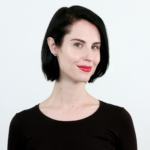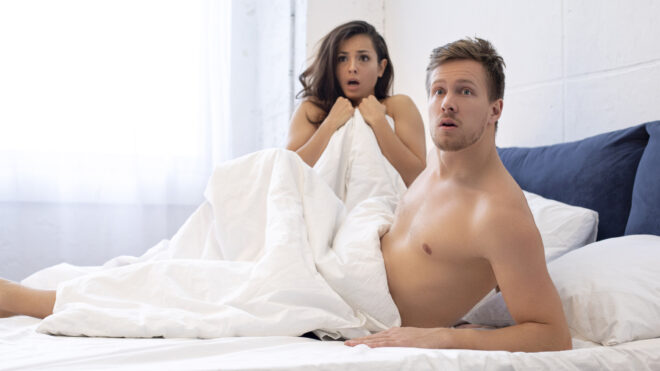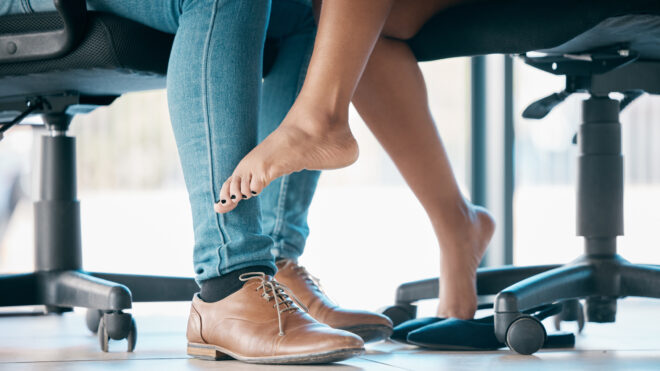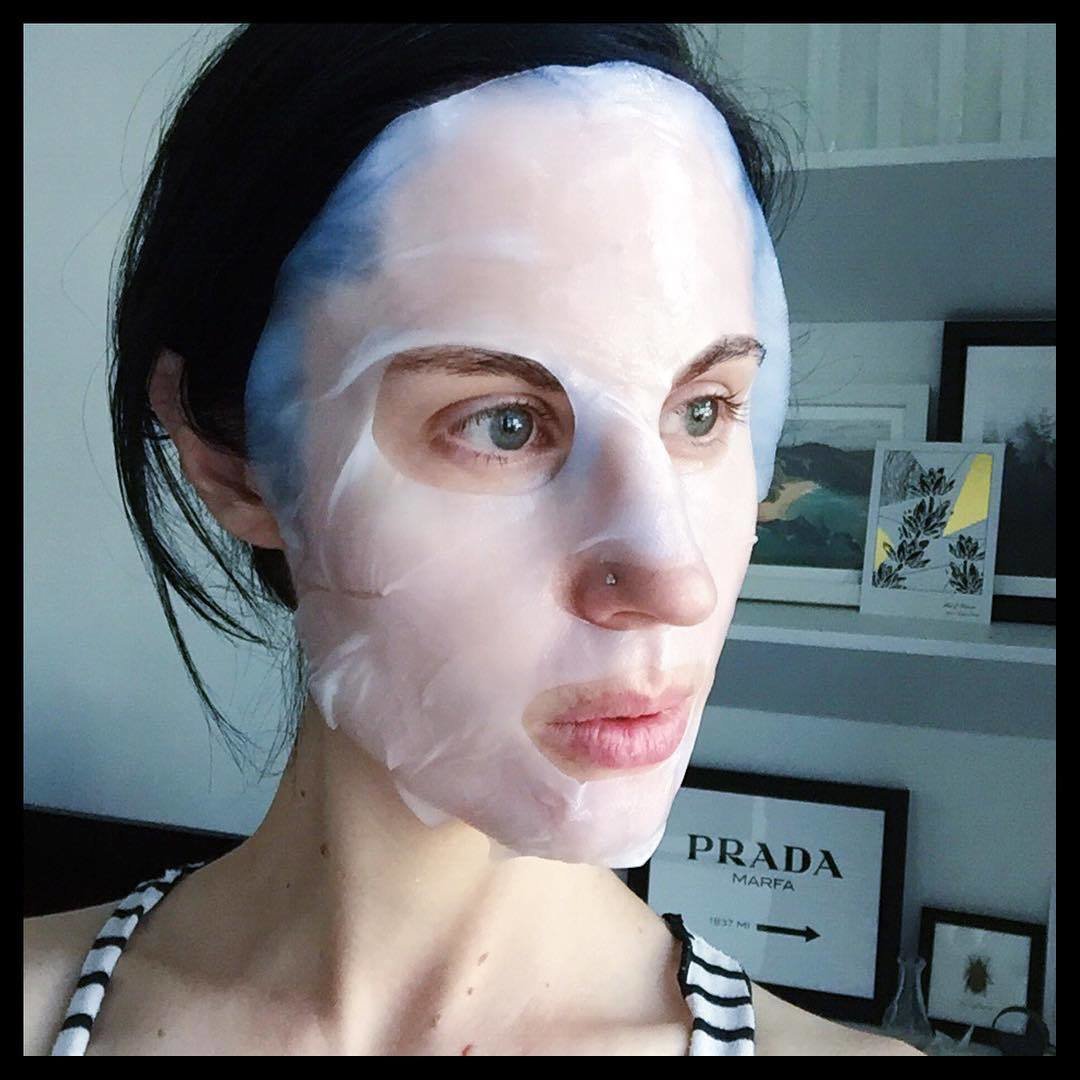
If you're a sheet mask fan like yours truly, I've got some disgusting news for you. As Racked first reported, it turns out that a lot of the products we rely on for our "glowing skin" might be manufactured and packaged in really revolting conditions.
That's right. If you use popular sheet masks from Korea, your skin might be at risk.
K-Beauty gained popularity in the US primarily because Korean skincare is supposedly on another level of excellence. But according to Racked, this isn't the case — the factories are filthy, masks are folded in people's homes where sanitary guidelines are completely ignored, and workers are paid sweatshop wages.
And as bad as all this sounds, it's actually even worse.
The scandal began, as many scandals do, on Reddit.
A post on the Asian Beauty subreddit by a Korean woman living in Seoul sparked a massive discussion — she wrote that, in Korea, it had been revealed that many face masks were "produced in conditions far from hygienic." This news hadn't broken internationally yet, despite K-beauty being a global phenomenon, so she shared some links to back up these claims.
The first was a blog post written by a part-time worker at a factory that produces Sulwahsoo sheet masks.
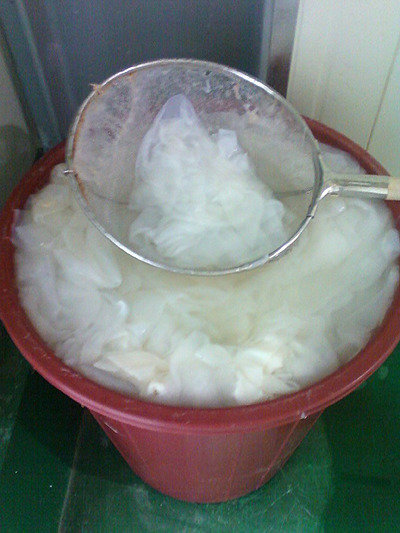
The whole post is in Korean, but was helpfully translated in the Reddit thread. According to the original blog post, the anonymous worker says that "the factory does care about hygiene in general, but the end product is just so dirty that they end up saving only 1 in 10 masks these days."
And while ALL the pictures are pretty distressing, one Reddit translator said that the truly gross thing wasn't even pictured. "She says that after the fermented mask was made, before essence is added and sealed, they had to manually pick out particulate matter with tweezers."
Ew. Ew. Ew.
But let us consider the source before we panic. This post was written back in 2011 by someone, who according to the translations, didn't like her job much, nor was she given a lot of responsibility. That could have easily colored the way she recorded things. However, her assertions about industry-wide grossness are backed up by a 2014 investigation of a sheet mask factory that discovered that workers often smoked onsite.
Regardless, it's a *long* way from the public perception of K-beauty — videos like this one by MBD show near laboratory-grade cleanliness at every stage.
It's no wonder consumers have been shocked by these new claims.
Another gross revelation is that many upscale sheet masks are packaged by hand, in private homes that are not subject to any kind of hygiene rules.
This video shows a worker folding masks without wearing gloves, using the same plastic mask-folding "guide" every time. BACTERIA. GERMS. BACTERIA AND GERMS. EEK.
Folding masks in your home is technically illegal in South Korea, but because the skincare industry is so huge, a lot of people do it anyway. Racked summarizes the process like this:
"Mask sheets and envelopes are dropped off to mask folders, who often work in teams of two or three. The stacks of masks are folded using a guide, much like the sort used to fold shirts in a retail shop, and inserted into a mask envelope. There the envelopes sit, one side open, until they’re collected and taken to the factory […] Once in the factory, they are sterilized, filled with essence, and subjected to microbial checks. A post on the Pann news forum noted that sterilized masks could still contain debris such as hair."
And before you ask — yes, that happens.
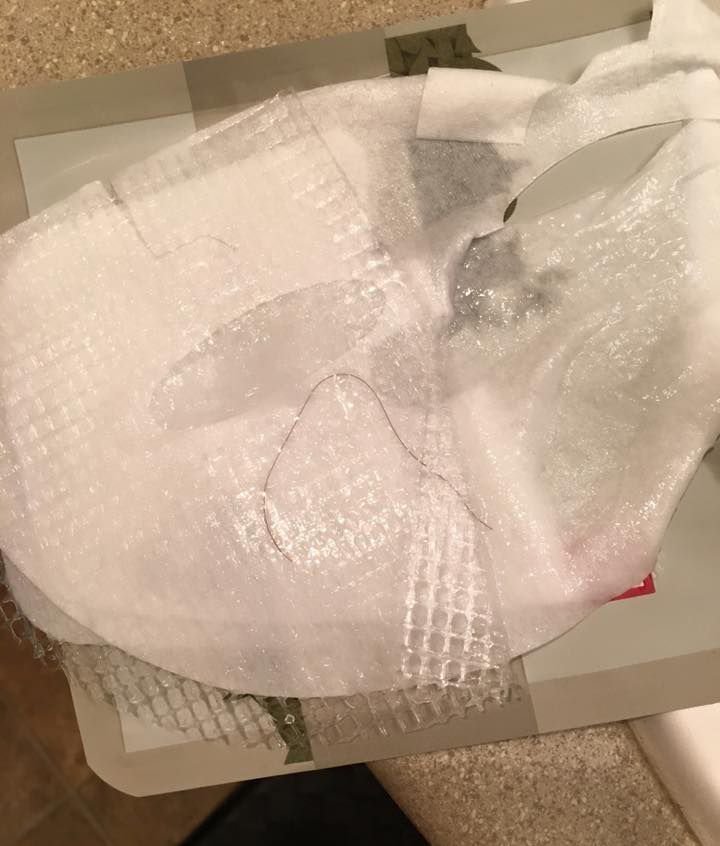
Racked published this photo, which frankly speaks for itself.
Apparently this "manual folding" is incredibly widespread in the K-beauty industry — and comes at a horrible price.
Sources claim that most of the top skincare brands subcontract mask-folding out to at-home workers, because it's faster and cheaper than using machines. This enables brands to keep prices low — but it also means that human workers are getting paid REALLY badly.
WeeklyDongA reports that a mask-folder earns "3 South Korean won for folding single sheets, which is equivalent to about 1/4 of a US penny. For folding masks with a backing layer workers could earn 4 to 5 won each." Per Racked, for folding 1,200 sheet masks, a worker could be paid $3.21.
That is some sweatshop-level unethical fuckery right there.
But K-beauty skincare brands say it isn't their fault.
Though no brands have denied that their masks are manually folded, they insist that workers are supervised, and work in sanitary conditions in their homes. And anyway, they employ sub-contractors to take care of the folding — so they're the ones to blame if hygiene standards aren't being met.
But you don't have to look too far to find plenty of anecdotal evidence that things are *pretty* revolting.
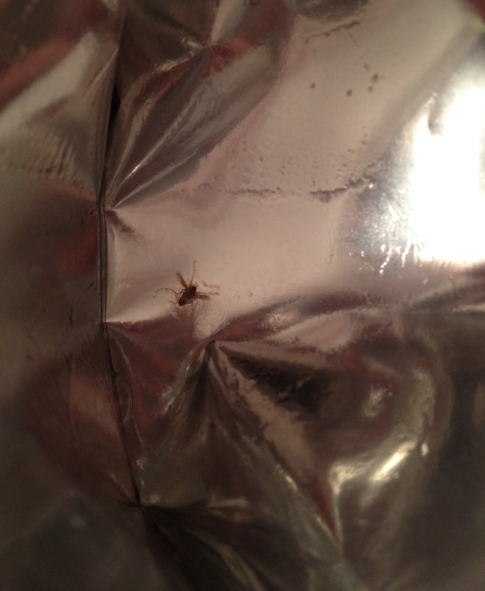
One Redditor shared multiple photos of a dead bug that she found in a sealed sheet mask package. Another found what looked like mold on a mask. And K-beauty blogger Snow White and the Asian Pear reported opening a mask and smelling laundry detergent and nicotine.
While it's difficult to tell if these issues are the result of unfair labor practices, unsanitary factory conditions, or a poorly regulated at-home industry, I think we can *all* agree that something bad is up here. It's really bogus that something people buy as an affordable indulgence, or to take care of very real skin conditions, could actually be affecting their skin negatively.
What do you think about these claims? Will it affect the masks that you buy?
I'm a massive K-beauty fan, and this is stressing me out. Anyway. Talk to me about your relative stress level (and tell me if you've ever had a bad face mask experience) in the comments, or on Facebook!
